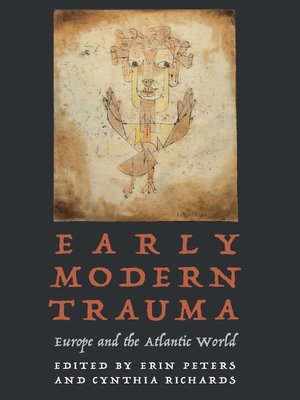Early Modern Trauma
ebook ∣ Europe and the Atlantic World · Early Modern Cultural Studies
By Erin Peters

Sign up to save your library
With an OverDrive account, you can save your favorite libraries for at-a-glance information about availability. Find out more about OverDrive accounts.
Find this title in Libby, the library reading app by OverDrive.



Search for a digital library with this title
Title found at these libraries:
| Library Name | Distance |
|---|---|
| Loading... |
The term trauma refers to a wound or rupture that disorients, causing suffering and fear. Trauma theory has been heavily shaped by responses to modern catastrophes, and as such trauma is often seen as inherently linked to modernity. Yet psychological and cultural trauma as a result of distressing or disturbing experiences is a human phenomenon that has been recorded across time and cultures.
The long seventeenth century (1598–1715) has been described as a period of almost continuous warfare, and the sixteenth to eighteenth centuries saw the development of modern slavery, colonialism, and nationalism, and witnessed plagues, floods, and significant sociopolitical, economic, and religious transformation. In Early Modern Trauma editors Erin Peters and Cynthia Richards present a variety of ways early modern contemporaries understood and narrated their experiences. Studying accounts left by those who experienced extreme events increases our understanding of the contexts in which traumatic experiences have been constructed and interpreted over time and broadens our understanding of trauma theory beyond the contemporary Euro-American context while giving invaluable insights into some of the most pressing issues of today.
The long seventeenth century (1598–1715) has been described as a period of almost continuous warfare, and the sixteenth to eighteenth centuries saw the development of modern slavery, colonialism, and nationalism, and witnessed plagues, floods, and significant sociopolitical, economic, and religious transformation. In Early Modern Trauma editors Erin Peters and Cynthia Richards present a variety of ways early modern contemporaries understood and narrated their experiences. Studying accounts left by those who experienced extreme events increases our understanding of the contexts in which traumatic experiences have been constructed and interpreted over time and broadens our understanding of trauma theory beyond the contemporary Euro-American context while giving invaluable insights into some of the most pressing issues of today.







